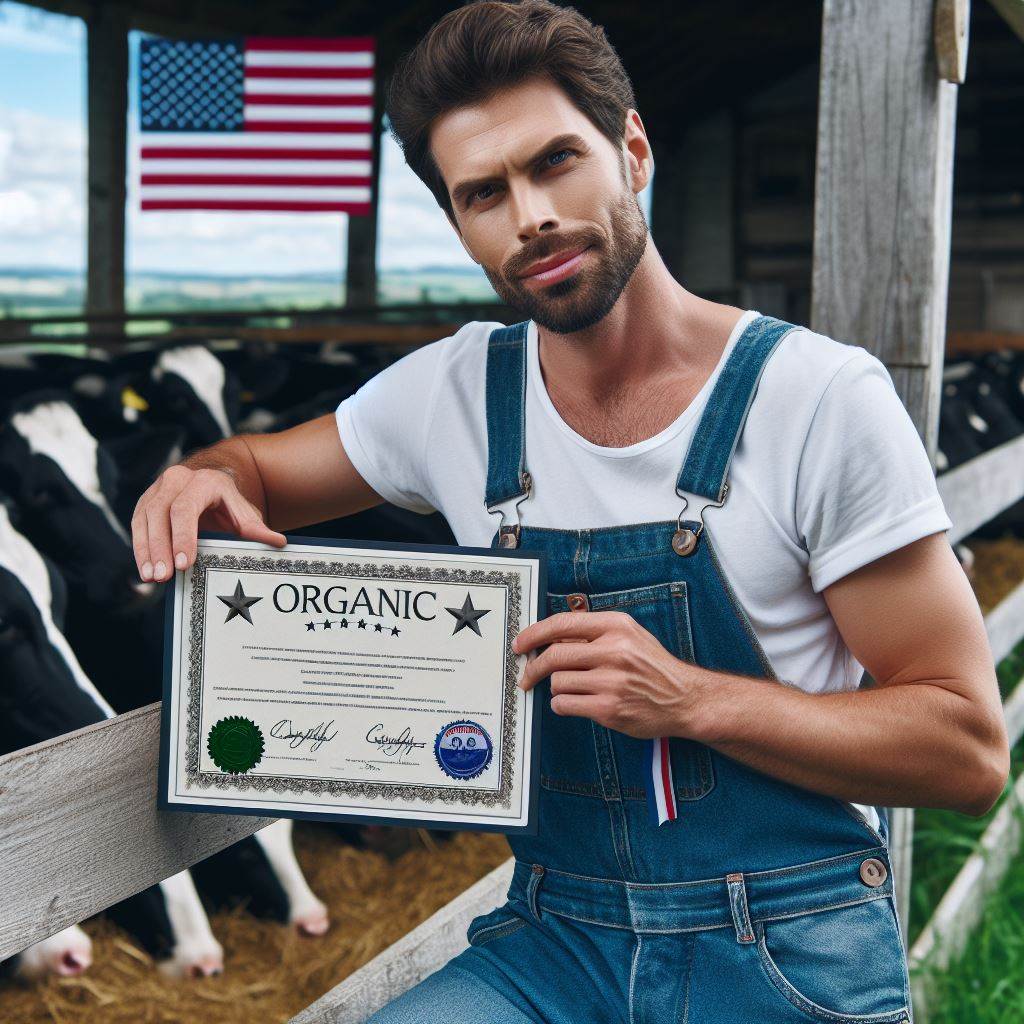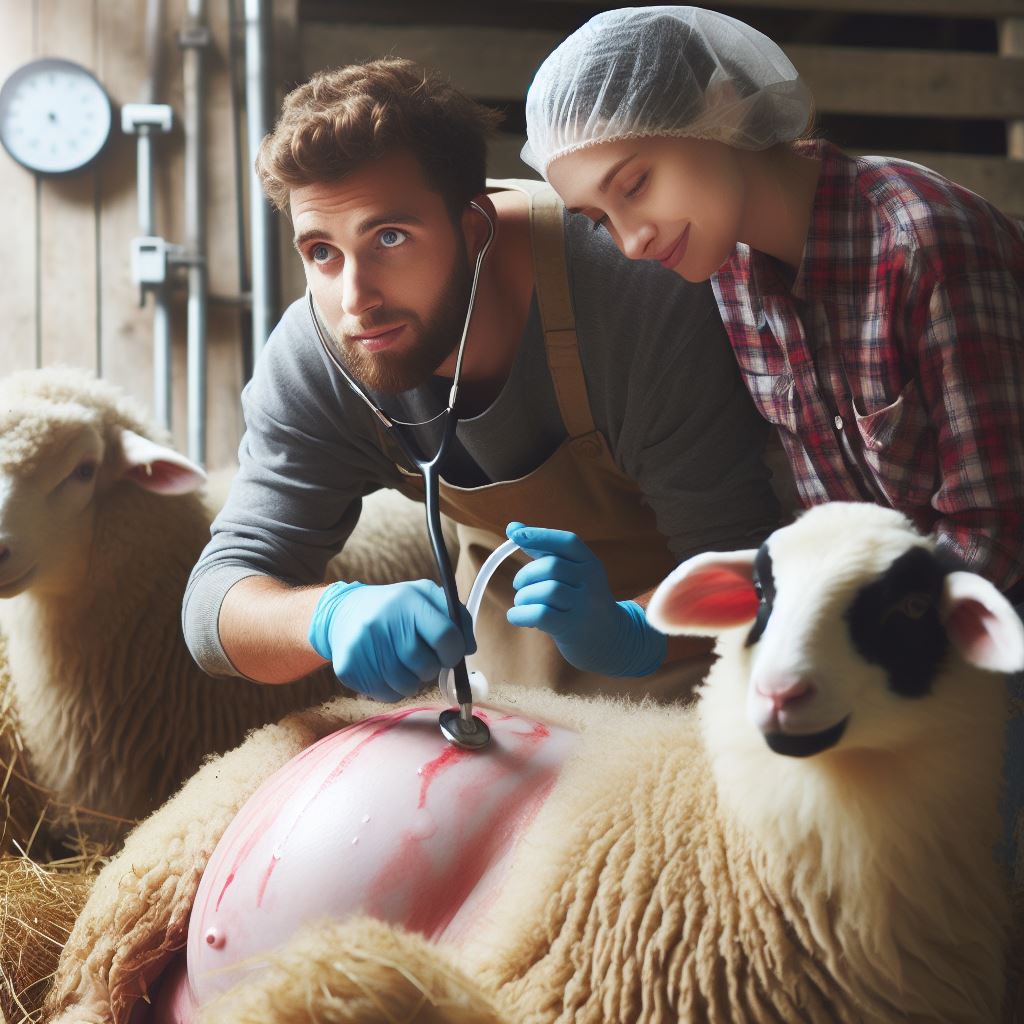Introduction
Let’s explore Organic Livestock Pros and Cons.
Organic livestock refers to animals that are raised without the use of antibiotics, hormones, or synthetic pesticides.
It has gained importance and popularity due to the increasing demand for organic food.
Pros of Organic Livestock
- Health Benefits: Organic animal products have higher levels of certain nutrients and lower pesticide residues.
- Environmental Protection: Organic farming practices promote biodiversity, reduce pollution, and conserve natural resources.
- Animal Welfare: Animals raised organically are given access to outdoor spaces and are treated humanely.
Cons of Organic Livestock
- Higher Costs: Organic livestock farming requires additional labor, organic feed, and certification, making it more expensive.
- Lower Yields: Organic farming methods may result in lower productivity compared to conventional livestock farming.
- Misleading Labels: Some products labeled as “organic” may not meet rigorous organic standards, leading to consumer confusion.
Organic livestock farming offers numerous benefits, such as improved food quality and environmental sustainability.
However, it also faces challenges, such as higher costs and lower yields.
Consumers must be aware of misleading labels and support genuine organic practices for a sustainable future.
Read: Top Feeding Tips for Healthy Sheep
Pros of Organic Livestock
Improved animal welfare
Organic livestock farming has various advantages that contribute to positive outcomes for both animals and the environment.
One significant benefit is improved animal welfare.
Organic farms prioritize providing animals with access to outdoor areas, allowing them to engage in natural behaviors and experience a higher quality of life.
Additionally, organic livestock farms ensure enhanced living conditions by giving animals more space to move and cleaner environments, which promotes their physical and mental well-being.
Healthier and safer food products
The production of healthier and safer food products is another advantage of organic livestock farming.
Organic practices reduce the use of antibiotics and hormones, resulting in lower residues in meat and dairy products.
This reduces the potential risks associated with consuming such residues.
Moreover, organic livestock farming minimizes pesticide exposure, reducing the chances of contamination in food products.
Transform Your Agribusiness
Unlock your farm's potential with expert advice tailored to your needs. Get actionable steps that drive real results.
Get StartedThe absence of synthetic additives in organic food products often leads to higher nutrient content, providing consumers with more nutritious options.
Environmental benefits
Organic livestock farming also offers significant environmental benefits.
By implementing proper waste management techniques and reducing the use of chemical fertilizers, organic farms help decrease pollution levels.
This protects air and water quality, ensuring a healthier environment for all living beings.
Conservation of biodiversity is another environmental advantage of organic livestock farming.
Organic practices prioritize maintaining natural ecosystems and habitats, supporting the preservation of various plant and animal species.
Sustainable land management is a key aspect of organic livestock farming.
Organic farms employ practices such as crop rotation and pasture management to sustain soil fertility and prevent soil erosion.
By avoiding the use of synthetic fertilizers, organic livestock farming contributes to sustainable land management, preserving the quality and productivity of the soil.
Therefore, organic livestock farming brings several benefits. It ensures improved animal welfare by providing outdoor access and enhancing living conditions.
The production of healthier and safer food products is achieved by reducing the use of antibiotics, hormones, and pesticides while increasing nutrient content.
Environmental advantages include reduced pollution, conservation of biodiversity, and sustainable land management practices.
Embracing organic livestock farming can lead to a more sustainable and ethical approach to animal agriculture.
Read: Ethical Meat Production Guide
Explore Further: Organic Animal Health Care
Cons of Organic Livestock
Organic livestock farming has gained popularity in recent years due to its focus on sustainable and ethical practices.
While there are numerous benefits to choosing organic livestock, it is essential to consider the potential drawbacks or cons associated with this method of farming.
In this section, we will explore the cons of organic livestock production.
Higher production costs
One significant drawback of organic livestock farming is the higher production costs involved.
These additional expenses can make organic products more expensive for both farmers and consumers.
Expenses associated with organic certification
To label their products as organic, farmers must go through the certification process.
This involves rigorous inspections, documentation, and additional fees.
These expenses can significantly add to the overall production costs.
Additional labor requirements
Organic livestock farms often require more labor-intensive practices than conventional ones.
Showcase Your Farming Business
Publish your professional farming services profile on our blog for a one-time fee of $200 and reach a dedicated audience of farmers and agribusiness owners.
Publish Your ProfileFarmers must dedicate additional time and effort to ensure compliance with organic standards.
This can lead to higher labor costs and increased workload for farmers.
Potential for lower economies of scale
Organic livestock farms typically operate on a smaller scale compared to conventional ones.
This limited size can result in lower economies of scale, making it challenging to achieve efficiency and cost-effectiveness.
The smaller operations may struggle to compete with larger conventional farms in terms of production and pricing.
Lower productivity
Another drawback of organic livestock farming is the potential for lower productivity compared to conventional methods.
This can impact both the quantity and quality of the end products.
Slow growth rates
Organic livestock may experience slower growth rates compared to animals raised with conventional methods.
This slower growth can result in delayed time to market, further increasing production costs.
Lower milk or egg production
In some cases, organic livestock may produce lower quantities of milk or eggs compared to animals given growth-promoting hormones or antibiotics.
This reduced productivity can limit the availability and increase the price of organic dairy or egg products.
Limited availability and higher prices for consumers
Consumers who choose organic livestock products may face challenges related to limited availability and higher prices.
Supply-demand imbalance
The demand for organic livestock products continues to rise, but the supply often struggles to keep up.
This imbalance can lead to limited availability, making it difficult for consumers to find the organic products they desire.
Increased cost of organic certification
The process of obtaining organic certification adds to the overall cost of production.
These increased expenses are often passed on to consumers, resulting in higher prices for organic livestock products.
Most importantly, while organic livestock farming offers numerous benefits, it also comes with its share of cons.
Higher production costs, lower productivity, limited availability, and higher prices for consumers are some of the drawbacks associated with organic livestock production.
It is important to weigh these cons against the potential benefits when deciding whether to pursue organic livestock farming.
Read: Sustainable Livestock Feed Ideas

Government regulations and certifications for organic livestock
Overview of organic standards and labels
Organic livestock production is subject to strict standards to ensure the production of organic meat, eggs, and dairy products.
These standards outline the specific requirements for feed composition, living conditions, animal health, and welfare.
Organic animals must be given access to pasture, and their feed must be free from synthetic additives, hormones, and genetically modified organisms (GMOs).
By following these standards, organic livestock producers aim to provide consumers with healthier and more environmentally friendly options.
Labels such as “100% organic” assure consumers that the entire product is made from organic ingredients.
Products labeled “organic” contain at least 95% organic ingredients, while “made with organic ingredients” indicates a minimum of 70% organic ingredients.
Role of government agencies in regulating organic livestock
Government agencies play a pivotal role in ensuring the integrity of organic livestock production.
The USDA is the main regulatory body in the United States responsible for overseeing organic livestock standards.
They develop the National Organic Program (NOP) and enforce its regulations for organic livestock.
The NOP conducts on-site inspections and audits to verify compliance with the organic standards.
These inspections assess factors such as animal welfare, feed composition, and recordkeeping.
Violations of organic livestock standards can result in penalties, loss of organic certification, and legal action.
Importance of certifications to maintain consumer trust
Organic certifications provide assurance to consumers that organic livestock products meet rigorous standards.
Authorized certifying agencies evaluate producers’ compliance with organic regulations through on-site inspections and document verification.
These certifications act as a trust mark, indicating that the products have been produced according to strict organic guidelines.
They give consumers confidence in their purchasing decisions and encourage the growth of the organic livestock industry.
Without certifications, it would be challenging for consumers to differentiate between genuine organic products and those falsely labeled as organic.
Certifications also contribute to the credibility and integrity of the organic livestock sector as a whole.
By maintaining consumer trust, organic certifications support the long-term sustainability of the industry.
Overall, government regulations and certifications play crucial roles in ensuring the authenticity and quality of organic livestock products.
Showcase Your Farming Business
Publish your professional farming services profile on our blog for a one-time fee of $200 and reach a dedicated audience of farmers and agribusiness owners.
Publish Your ProfileThey provide consumers with transparency and trust in the organic label, promoting the growth of the organic livestock market.
By adhering to these regulations and obtaining certifications, producers demonstrate their commitment to responsible and sustainable livestock production.
Read: Eco-Friendly Livestock Shelters
Conclusion
Summary of pros and cons of organic livestock
Organic livestock farming has numerous benefits such as enhanced animal welfare, reduced environmental impact, and healthier products.
However, it also faces challenges such as higher costs and limited market access.
Encouragement for farmers to weigh the benefits and challenges
Farmers should carefully consider the advantages and difficulties associated with organic livestock farming before making a decision.
It is crucial to assess their resources, commitment, and market demand.
A call to support organic livestock farming for a sustainable future
Supporting organic livestock agriculture is essential for fostering a sustainable future.
It promotes biodiversity, reduces chemical usage, and ensures the availability of safe and nutritious food for generations to come.
Let’s choose organic!




